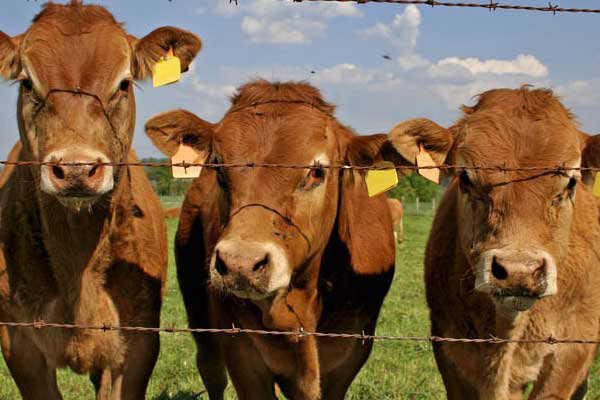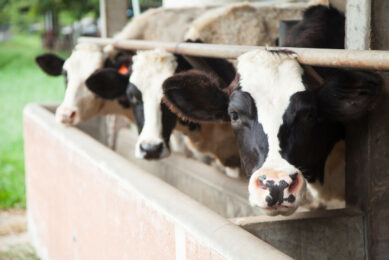Californian mad cow was isolated case

A California Holstein discovered to have mad cow disease in April was an isolated case and didn’t pose a threat to the food supply, a report issued by the US Department of Agriculture says.
A three-month investigation looked into the movements of the infected dairy cow, her offspring and the feed eaten by the herd. The investigation turned up no other cases of bovine spongiform encephalopathy (BSE).
The 10-year-old dairy cow, only the fourth with the sickness ever discovered in the US, was found as part of an Agriculture Department program that tests for the fatal brain disease in about 40,000 of the 35 million cows slaughtered each year.
It was unable to stand before it was killed and sent April 18 to a rendering plant at a Hanford, California, transfer station.
It was one of dozens that underwent random testing at the site, and the positive results set off the federal investigation into the source of the disease.
USDA investigators tracked the cow from the ranch where she was born to a heifer operation where she was raised and bred and to the Tulare County dairy where she spent her life.
Investigators found 282 cattle it identified as birth “cohorts” and attempted to trace the 210 that might have made it into the food system. Ultimately investigators slaughtered one dairy cow that was the Holstein’s offspring, but she was found not to be infected.
Taiwan ban
Despite the single case found in California cattle organs and ground beef from the United States will be barred from import to Taiwan until 2022, a veterinary expert said, citing a domestic food sanitation law.
Article 11 of the Act Governing Food Sanitation prohibits such imports from places with cases within the last 10 years of BSE was found, said Yang Ping-cheng, head of the Animal Technology Institute Taiwan.
The US is obliged to inform Taiwan of its final investigation results of mad cow disease in compliance with a bilateral agreement on the beef issue.
In contrast, Taiwan’s Legislature passed amendments to the food safety act last week allowing the banned drug ractopamine in beef, opening the way for US beef imports containing the leanness-enhancing livestock feed additive.











